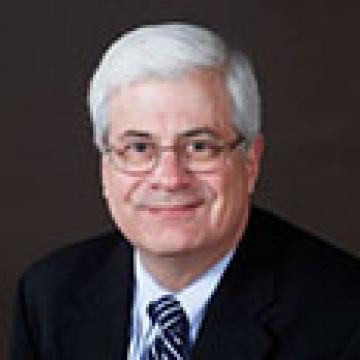Gerald Ford: Campaigns and Elections
The 1976 Republican Primary:
Before President Gerald Ford could take on a Democrat in the 1976 presidential election, he first needed to secure the Republican nomination. This task proved surprisingly difficult because of the primary challenge launched by former governor of California, Ronald Reagan. The ideological heir to ultra-conservative senator of Arizona (and 1964 Republican presidential nominee), Barry Goldwater, Reagan was a strong candidate for two reasons. First, conservative Republicans—Reagan's key constituency—disliked Ford's economic policies and detested the Ford-Kissinger policy of détente toward the Soviet Union. These disaffected Republicans found in Reagan a vehicle for their discontent. Second, Reagan's sunny and genial optimism made him a likable candidate. In December 1975, a national poll ranked Reagan ahead of Ford among Republican voters.
Ford and Reagan engaged in a bitter and close fight for the nomination during the first eight months of 1976, trading victories in a series of state Republican primaries. Ford entered the Republican National Convention in Kansas City with a slight lead in delegates over Reagan.
As the incumbent, Ford had courted wavering Republican delegates in key states by inviting them to the White House, by offering to speak in their states, and by rewarding delegates with patronage positions. Ford won the nomination on the first ballot but only by a mere sixty delegate votes. Since Ford had removed Vice President Nelson Rockefeller from the ticket in November 1975, he was now free to nominate Senator Robert Dole of Kansas for the second spot on the Republican ticket, a choice that Reagan had vetted and approved.
The Campaign and Election of 1976
James Earl Carter, Jr., a one-term governor of Georgia who commanded only modest national attention, captured the Democratic presidential nomination in 1976. "Jimmy" (as he liked to be known) Carter was a successful peanut farmer, nuclear engineer, and retired officer of the U.S. Navy. Campaigning early and hard in the Democratic primaries, Carter sold himself as a "Washington outsider" who promised to bring morality, decency, and trust back to American politics, claiming "I will never lie to you." It was a powerful message in the wake of the American defeat in Vietnam and the Nixon administration's criminal wrongdoings associated with Watergate. Carter won the Democratic nomination on the first ballot. He chose the more liberal Senator Walter F. Mondale of Minnesota as his running mate, hoping to balance the ticket ideologically and geographically.
Ford left the Republican convention trailing Carter by thirty-four points in the polls. He tried valiantly to play catch-up during the fall campaign and did manage to close the gap. The Ford campaign stressed the President's honesty and experience—all the while questioning whether Carter possessed those same attributes—and reassured Americans that an economic recovery was underway. Carter's lead in the polls slipped after Playboy magazine published an interview in which the candidate confessed to having lusted in his heart after many women. Ford, though, committed the biggest gaffe of the campaign in a nationally televised debate between the candidates. Answering a question about Eastern Europe, Ford botched a rehearsed line in his briefing book and declared that "There is no Soviet domination of Eastern Europe, and there never will be under a Ford administration." (At the time, all the countries in Eastern Europe had Communist governments and were under the Soviet sphere of influence; some were even occupied by Soviet troops.) Despite the fact that this was not what Ford meant to say, he then compounded his mistake by refusing to admit it, and the media's treatment of this episode made his handling of the initial blunder even worse.
Only 54 percent of eligible voters cast ballots in 1976, the lowest turnout since World War II. Carter won the 1976 presidential election by a narrow margin of 57 Electoral College votes with 297 to Ford's 240. He won the South and the industrial Northeast, reassembling the old New Deal coalition of organized labor, minorities, urban liberals, and southerners, eventually winning 23 states and the District of Columbia. Ford carried 27 states: the entire West—except Hawaii—plus a number of states in New England and the Upper Midwest.
